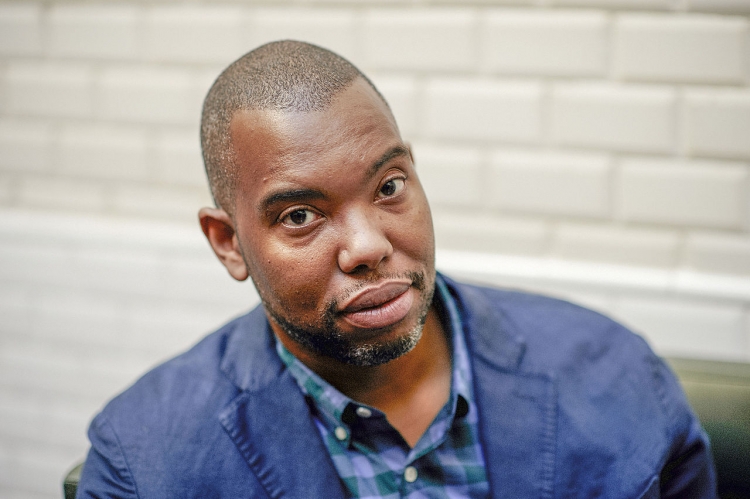Ta-Nehisi Coates at AUP: The Reality of Racism in America

Ta- Nehisi Coates is an American writer, journalist and educator. His writings cover a broad range of topics concerning cultural, social and political issues; as well as exploring their relationship to African-Americans. Coates is a national correspondent for The Atlantic and is currently living in Paris, France with his family. The American University of Paris had the pleasure of hearing Coates speak on his second book, "Between the World and Me", which won the National Book Award for non-fiction last year.
The international atmosphere of AUP creates an interesting outside space to talk about issues of racism in America. Coates presented these sensitive issues clearly and with conviction. He expressed that he is uncomfortable being placed on the pedestal of public intellectual, thinker or even writer, but instead aims to see himself in process, always in the position of learning. Coates began his talk by giving a bit background on himself and his inspirations for writing the book. Two years ago Coates wrote a piece arguing for the reparations of African Americans. “The seed of that piece went way back to me being a young child and living in a world where I could not understand the distance, the gap, between America as it projected itself in its sitcoms, in its advertisement, in all of its commercial propaganda, and the place where I lived in West Baltimore.”
He states that the things that troubled him about his hometown were also present in other cities of friends and family. He says, “It was as if we were all living in some sort of communal city that was somehow spread out across the United States; same problems and same dilemmas. Increasingly I wonder whether that city is in fact global, that’s one of the questions I bring into Paris, France. So I have this desire to explain that. Not to explain it to you, but to explain it to myself, because I’ve always felt that the ability to understand is an act of liberation in and of itself.”
Image credit: John D. & Catherine T. MacArthur Foundation
Along with this liberation of understanding comes the responsibility to recognize and acknowledge what is in fact happening to and around you. “There is the racism of America, the fact of racism, but there’s also the effort to conceal that racism; the effort to make black folks lie to themselves, to make black folks believe that they are in fact crazy. To achieve a level where you understand the things that are happening to you are actually happening to you, that you are not in fact crazy, this too is a kind of liberation.”
Along with this effort to conceal or “put to the side” the reality of racism in America, also comes the failure to acknowledge the integral role of slavery in the history of the America as a country. “What was imperative was that one would not be possible without the other, it became apparent to me that in America the process of enslavement, the process of importing a group of people from another continent, naming them something, restricting their rights, extracting their labor for 250 years, following up that extraction with 100 years of state sanctioned or the state looking the other way at what we would call today terrorism, that this in fact was not off to the side, this was not a bump on the road in becoming America, this was the road itself, that indeed you could not split America away from the thing. Without the legacy of white supremacy there actually was no way of imagining the country at all.”
A spectator in the audience asked whether or not Coates has hope, and if he feels like he has the responsibility to inspire hope. He responded saying, “I think people who are struggling in situations grasp for hope all the time; if only as a means for survival. I don’t think that’s wrong, but I don’t think our artists, writers, and thinkers are required to necessarily do the same thing. It’s not even a matter of being “for” or “against” hope. The requirement that I ask from literature and from art is that you look out at the world, and you speak to it as truthfully as you possibly can. I have to write as myself, I have to be me, and to me the premier value is not hope but struggle.”
For further inquiry, I recommend purchasing "Between the World and Me".
Image credit: Cultural Front









